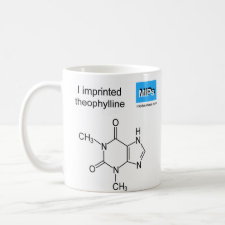
Authors: Yan H, Row KH
Article Title: Characteristics of a monolithic molecularly imprinted column and its application for chromatographic separation.
Publication date: 2007
Journal: Journal of Industrial and Engineering Chemistry
Volume: 13
Issue: (4)
Page numbers: 552-557.
Alternative URL: http://www.cheric.org/PDF/JIEC/IE13/IE13-4-0552.pdf
Abstract: Monolithic molecularly imprinted columns were designed and prepared by in situ thermal-initiated copolymerization for rapid separation of the xanthine derivatives such as caffeine, theobromine, and theophylline. Molecular recognition was found to be dependent on the structures and arrangements of functional groups of the imprinted molecule and the cavities of the MIP. The morphological characteristics of the monolithic MIP were investigated using scanning electron microscopy, which showed that both mesopores and macropores were formed in the imprinted monolith. The effects of the chromatographic separation conditions on the molecular recognition were investigated; hydrogen bonding and hydrophobic interactions played an important role in the retention and separation. Thermodynamic data (Δ Δ H and Δ Δ S) obtained from Van't Hoff plots revealed an enthalpy-controlled separation. The present method is very simple compared with the bulk MIP procedure; the macroporous structure has excellent separation properties
Template and target information: xanthine alkaloids, caffeine, theobromine, theophylline
Author keywords: In situ polymerization, molecularly imprinted polymer, monolithic column, xanthine derivatives



Join the Society for Molecular Imprinting

New items RSS feed
Sign-up for e-mail updates:
Choose between receiving an occasional newsletter or more frequent e-mail alerts.
Click here to go to the sign-up page.
Is your name elemental or peptidic? Enter your name and find out by clicking either of the buttons below!
Other products you may like:
 MIPdatabase
MIPdatabase









